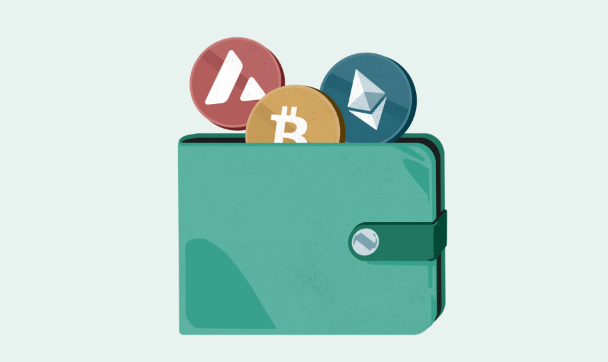Crypto wallets are essential in storing your digital assets, as they securely help to keep keys needed to assess your Cryptocurrencies on the Blockchain. Digital asset wallets are categorized as hot and cold wallets. This article compares the two categories to help you choose what fits your needs.
What is a hot wallet?
A hot wallet is a platform where cryptos can be stored, sent, and received, through a connection to the internet with internet-accessible devices, such as laptops and phones. A hot wallet can be downloaded on Google Play and App Store as an application and can be an extension on a web browser.
Hot wallet pros
- Free to use
- Easy to set up
- Intuitive with a user-friendly interface
- Suitable for regular digital funds payment and trading
- Convenient to use as it eliminates the need for transition between offline and online before transactions
- Allows easy access to cryptos through different internet-accessible devices such as laptops and phone
Hot wallet cons
- Digital assets can be exposed to security breaches risks
- Keys details can be exposed through the installation of malicious applications on hot wallet-accessible devices
- As an internet connection is needed to assess a hot wallet, different wallets features are restricted based on countries’ local laws or jurisdiction
What is a cold wallet?
A cold wallet is an offline solution for storing and exchanging cryptocurrencies using physical devices. It is also known as a hardware wallet and can be in the form of a USB flash drive.
Cold wallet pros
- Portable
- Best to use for long-term storage
- Free from online cyberattacks, as keys are stored offline
- Eliminates third-party involvement in crypto storage experience, making users the sole custodian of their digital funds
Cold wallet cons
- Complex to use
- Not free to use as price ranges from $50 and above
- It can easily get lost or stolen when carelessly handled
The table below summarizes the comparison between hot and cold crypto wallets.
| Hot wallet | Cold wallet |
| Free to use | Price ranges from $50 and above |
| Easy to use | Cumbersome to use |
| Can store from 1 to 10 thousand cryptos | Can store from 1000 cryptos to tens of thousands |
| Can be easily attacked due to constant connection to the internet | Not frequently attacked as it is offline |
| Best to use for crypto easy access and trading | Best to use for long-term crypto storage |
Popular crypto wallets
There are numerous hot and cold crypto wallets in the market. The following gives examples of popular hot and cold digital asset wallets you can choose from.
Popular hot wallet examples
MetaMask: MetaMask is a free cryptocurrency hot wallet in the form of a browser extension and mobile application. It is compatible with most browsers, such as Chrome, Microsoft Edge, Firefox, and Brave. It is one of the best wallet solutions that allow users to connect to the Ethereum ecosystem to manage their Ethereum-based assets and access decentralized exchanges, gaming sites and platforms, and other dapps.
Exodus wallet: Exodus wallet can be used on desktops, web browsers, and mobile phones (iOS and Androids). It supports the most widely known Blockchain networks, such as Ethereum, Solana, and Cardano, and a hardware wallet, such as Trezor One and Trezor Model T, to allow users to manage and store their cryptos and NFTs.
Trustwallet: Trustwallet allows users to collect NFTs and buy, store, exchange, and earn interest on stored cryptos. You can also access the latest DeFi and Dapp platforms and play crypto games. Trustwallet can be operated on mobile devices and web browsers.
Edge: Edge is one of the most secure ways to buy, trade, and store cryptos. It is available in over 179 countries, with over 3.3 million users. It is intuitive and provides maximum security for its users. Edge can be downloaded on Google Play and App Store.
Coinbase wallet: With Coinbase wallet, you can store different cryptos and NFTs in one place securely, explore dapps’ universe, and send and receive digital funds anywhere. It can be downloaded on Google Play and App Store and used as a browser extension. Finally, the Coinbase wallet is available in over 170 countries and 25 languages.
Popular cold wallet examples
Ledger: Ledger is one of the most popular cold wallets that provides the highest security to your crypto assets and NFTs. It eliminates worrying about cyberattacks and gives you complete control over your digital funds. To use the Ledger wallet device, you need applications or wallets to connect your Ledger hardware wallet to their platform. An example of such is Ledger Live. Other ledger-friendly third-party wallets are MyEtherWallet, Metamask, MyCrypto, Binance DEX, and more.
Trezor: Trezor is an advanced cold wallet that provides the ultimate security for cryptos. It allows you to easily manage your funds by connecting to a native application known as Trezor Suite—other trusted third-party applications to connect your Trezor hardware wallet to are Coinmap, Exodus, and Metamask.

